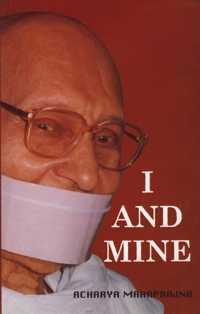

Sahishnuta means tolerance. It has another meaning - power. Tolerance proves useful to man only when both the meanings are combined. Powerless tolerance is dependence, not the vigour of one independent consciousness. There is human touch where tolerance is accompanied by power. There is neither egotism nor a feeling of inferiority. Both egotism and inferiority signify imbalance. They cannot be instrumental in touching the human conscience. For that touch equity and balance are needed. Disparity as a part of one's nature sunders human relations. Two persons can be mutually related only when both have a feeling of parity and harmony, and are devoid of inferiority well as egotism. What else is Adhyatma Yoga? It is nothing but parity and harmony. Acharya Soma Deva Suri has regarded a harmonious relation between the soul, the mind, and reality as Adhyatma Yoga:

Why is tolerance needed?
People are not equal to one another from the point of view of likes, thoughts, genetic traits and work. It does not cause any difficulty that they are not uniform in external form. But difficulty does arise on account of lack of uniformity of likes etc. That difficulty can be solved only by tolerance. As soon as intolerance is practised the situation becomes intractable.
Once hands, tongue, teeth, legs, etc., got together. All felt that while they worked the stomach did not. They decided not to cooperate with an organ that did not work with them, and did not contribute anything. They went on strike. After a couple of days the hands lost vigour, the tongue started tasting foul, the mouth got filled with saliva and the teeth became dirty and started smelling. They met again on the third day and called off the strike.
Every individual has his own likes. But things would become impossible if in a camp having some fifty people, different types of curries were to be made. For avoiding such a situation harmonization of likes is necessary. Tolerance is nothing but such a harmonization of diverse likes. In its absence people do not unite but divide.
Tolerance is extremely necessary to keep an organization strong. It is all the more necessary in the case of the chief of the organization. Shree Krishna was the head of the republic.
Akrur and Bhojavanshi were leaders of the opposite party. They were highly critical of Shree Krishna. One day he felt sad at their criticism. Just then Naradji happened to come there and asked, 'Why are you so sad?' Krishna replied, I am sick of these people. Please show me the way of this state.' Narad said, 'There are two kinds of dangers - external and internal. Yours is an internal one. The external danger can be removed by arms. No arms can be helpful in removing the internal danger.' 'What should be done in that case?' asked Krishna. At this point Narad advised him to hold his tongue with the weapon of Anayas:

There is no just one type of weapons.
Once the king asked Birbal, 'What is a weapon?' Birbal replied, 'An opportunity.' The king expressed his surprise and said, 'What are you talking? A sword or a spear or a gun can be termed weapons. But how can an opportunity be a weapon?' At this Birbal said, I will prove it some day.' One day the king was marching in a procession. One of the elephants turned wild and started running. Birbal came forward, looked in all directions and found that besides a dog there was no one else there. Quickly he caught hold of one of the dog's legs and swinging it struck the elephant with it. The elephant went back. Is dog a weapon? But given the opportunity it turned into a weapon. Even Shastras (scriptures) sometimes turn into Shastras (weapons). The only difference between the two words is that of a vowel-mark.
Man can go astray more with the use of words and scriptural authority than by weapons. Sometimes even scriptures turn into weapons.

Krishna asked, 'What is this weapon called Anayas Shastra 1? (i.e. a weapon not made up of iron). Narad replied:

(Give as much food to the opponents as you can. Have patience and endurance - do not go into a rage the moment you hear their words. Behave in an upright manner. Observe courtesy. Respect the elders. This is Andyas Shastra, a weapon with no iron. You can captivate the opponents with this weapon.'
 Acharya Mahaprajna
Acharya Mahaprajna

